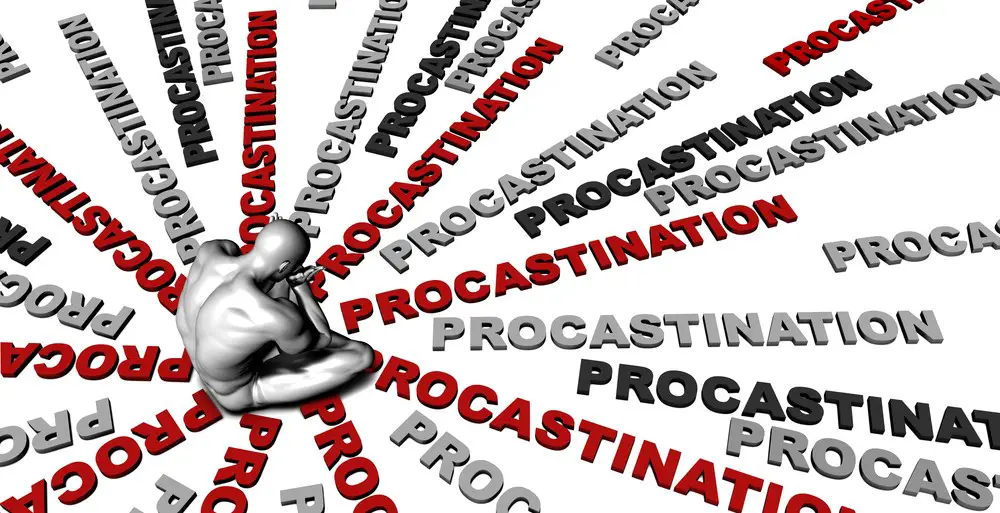As a BetterHelp affiliate, we receive compensation from BetterHelp if you purchase products or services through the links provided
Anxiety is a pervasive mental health issue affecting millions of individuals worldwide. One major contributing factor to anxiety is the development and persistence of mindless habits. These habits, often overlooked, can exacerbate negative feelings and leave individuals feeling overwhelmed and emotionally drained.
The association between mindless habits and anxiety is deeply rooted in an individual’s daily routines and lifestyle choices. These habits include excessive media consumption, poor sleep patterns, and unhealthy nutrition. A cycle of mindless behavior gradually erodes overall mental and emotional well-being, increasing susceptibility to anxiety.
Key Takeaways
- Mindless habits can exacerbate anxiety and negatively impact mental health.
- Daily routines and lifestyle choices play a significant role in the development of anxiety.
- Addressing mindless habits is essential in improving mental well-being and reducing anxiety.
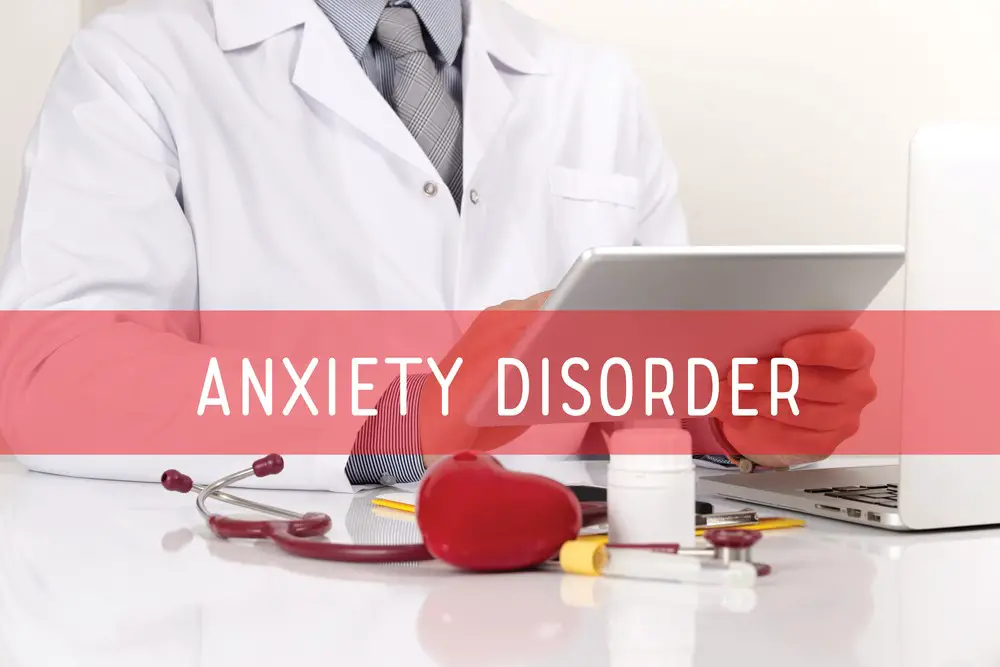
Understanding the Connection between Mindless Habits and Anxiety
Mindless habits, those unconscious actions we perform without much thought, can contribute to feelings of anxiety. Let’s explore how this connection between anxiety and mindless habits exists and affects our well-being.
Anxiety is a natural response when the body perceives potential threats or stressful situations. Our nervous system initiates the “fight or flight” response, releasing stress hormones and preparing us for action. However, excessive and prolonged anxiety can harm our overall health and well-being.
Mindless habits can add to anxiety by preventing us from being present at the moment and fully experiencing our emotions. They create constant mental distractions, leading to nervousness and even heightened stress levels. For instance, mindlessly checking social media feeds, engaging in negative self-talk, or excessively consuming stimulants, such as caffeine, can amplify anxiety symptoms.
Frequent engagement in mindless habits can cause our nervous system to remain in a constant state of arousal, making it difficult to find relaxation or relief from anxiety. This inability to find respite can lead to a cycle of increased anxiety and reliance on mindless habits to cope.
It’s essential to be aware of how your mindless habits affect your emotional state, allowing you to make conscious decisions about improving your overall mood and well-being. Identifying these habits and taking steps to break their hold over your daily life can reduce anxiety, improve mental focus, and improve emotional balance.
Identifying Mindless Habits That Cause Anxiety
Recognizing the mindless habits contributing to anxiety can be the first step toward a more relaxed life. These behaviors can include consuming too much caffeine, spending excessive time on social media, watching television, drinking alcohol, and procrastinating. These activities might seem harmless, but they can create the perfect storm for anxiety to creep in.
Coffee, a beloved beverage among many, can lead to anxiety due to its high caffeine content. Caffeine is a stimulant that can increase heart rate, trigger adrenaline release, and make someone feel jittery or nervous. Consuming moderate amounts may not cause significant anxiety, but excessive consumption can exacerbate it.
Social media is another seemingly harmless habit that can increase anxiety. Constantly checking for updates, comparing oneself to others, and experiencing the fear of missing out can all build a foundation for anxious feelings. Disconnecting from social media platforms, even just for a brief period, can help manage anxiety levels.
Television, though often considered relaxing, can also contribute to anxiety. Consuming too much negative news or stressful shows can increase unease, while sedentary behavior can lead to physical and mental discomfort. Moderating television intake and engaging in more active pursuits can help reduce anxiety levels.
Alcohol is sometimes used to cope with anxiety, leading to a detrimental cycle. Although drinking might provide temporary relief, it can lead to increased anxiety in the long term. Alcohol consumption disrupts normal brain function, exacerbating anxiety when the effects wear off.
Procrastination is another habit fueling anxiety, as putting off tasks can lead to mounting pressure and a constant sense of dread. Developing better time management skills and breaking large tasks into smaller, more manageable steps can assist in reducing anxiety related to procrastination.
Awareness of these mindless habits is essential in taking control of one’s anxiety. By addressing these habits and making healthier choices, individuals can work on managing their anxiety more effectively.
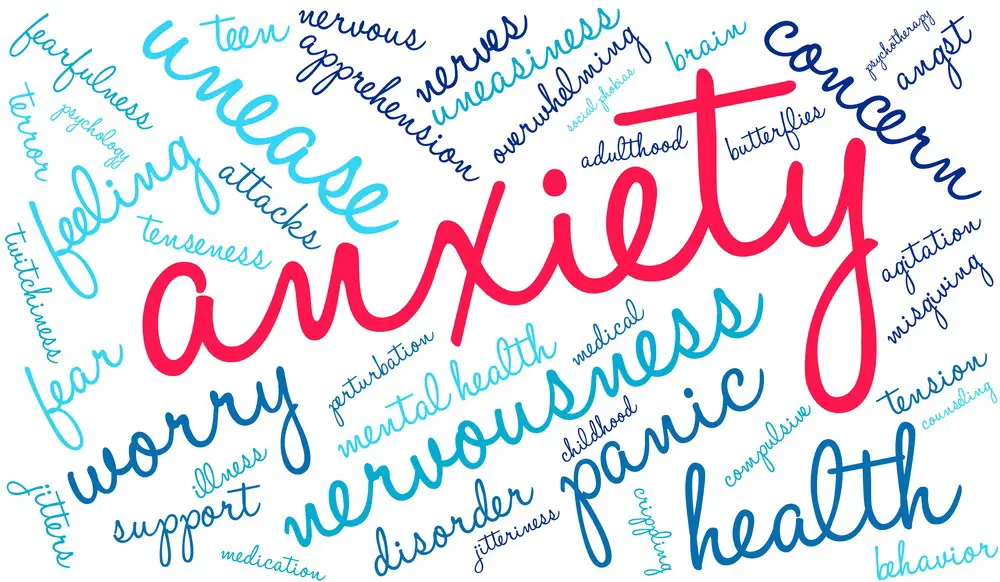
Recognizing Symptoms of Anxiety
Anxiety is a complex emotional state that can manifest in various forms with different symptoms. One common symptom is worry. People who struggle with anxiety may be consumed with worry over every small detail, anticipating negative outcomes and perceiving risks where there might be none.
Restlessness is another symptom, often occurring alongside worry. People dealing with anxiety might feel uneasy or agitated, making it difficult to mentally and physically relax. This can negatively affect their daily routines and overall well-being.
Sleep disturbances, such as insomnia, are common in those experiencing anxiety. They may have difficulty falling, staying, or experiencing restless or unsatisfactory sleep. Insufficient sleep can further exacerbate the symptoms of anxiety.
Some individuals might also experience dizziness as a symptom of anxiety. This can lead to feeling lightheaded or unsteady, accompanied by increased heart rate, shakiness, or changes in breathing patterns.
Anxiety can cause physical symptoms, too, affecting the mind and the body. This might include an upset stomach, headaches, muscle tension, or a rapid heartbeat. These physical manifestations can also interfere with daily functioning and cause distress.
Recognizing anxiety symptoms, such as worry, restlessness, insomnia, dizziness, and physical symptoms, is crucial for understanding and managing this condition. Awareness of these signs can help individuals seek appropriate support and take steps to improve their mental and physical well-being.
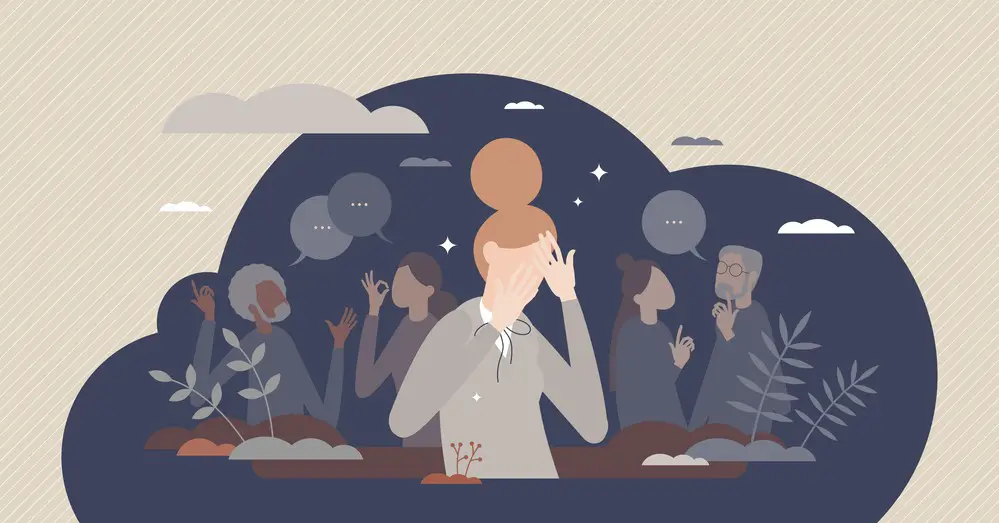
The Psychophysiology of Anxiety and Mindless Habits
Anxiety is a complex emotional response that affects both the mind and body. The nervous system plays a critical role in these processes, reacting to stressors and initiating the symptoms commonly associated with anxiety. A connection can be drawn between mindless habits and this psychophysiological response.
The nervous system is divided into two main components – the central nervous system consists of the brain and spinal cord. In contrast, the peripheral nervous system comprises nerves that help transmit signals to and from the body. Anxiety primarily stems from activating the sympathetic nervous system, a part of the peripheral nervous system. The sympathetic nervous system is responsible for the body’s “fight or flight” response, preparing it to confront or avoid danger.
When faced with a stressor, the nervous system releases stress hormones such as adrenaline and cortisol. These hormones increase heart rate, blood pressure, and respiration rate, resulting in physical symptoms of anxiety such as chest pain, shortness of breath, and dizziness. Other symptoms may include gastrointestinal issues, sweating, and nervousness. The mind may also enter a state of hyperarousal, causing cognitive symptoms like excessive worry, difficulty concentrating, and restlessness.
Mindless habits, which are repetitive and automatic behaviors, can contribute to individuals’ anxiety levels. These habits can serve as triggers, exacerbating the existing stressors and activating the nervous system response. For instance, frequently checking one’s phone for notifications or mindlessly scrolling through social media can increase nervousness and heightened physiological response.
Moreover, the link between mindless habits and anxiety can create a negative feedback loop. As anxiety symptoms increase, individuals may rely on these habits for temporary relief or distraction from their stressors. In turn, such behaviors further perpetuate the cycle, reinforcing the experience of anxiety and nervousness.
In conclusion, understanding the psychophysiological mechanisms underlying anxiety can help individuals identify the impact of mindless habits on their mental and physical well-being. Recognizing these patterns, individuals can work to develop more mindful strategies and alleviate their anxiety symptoms.
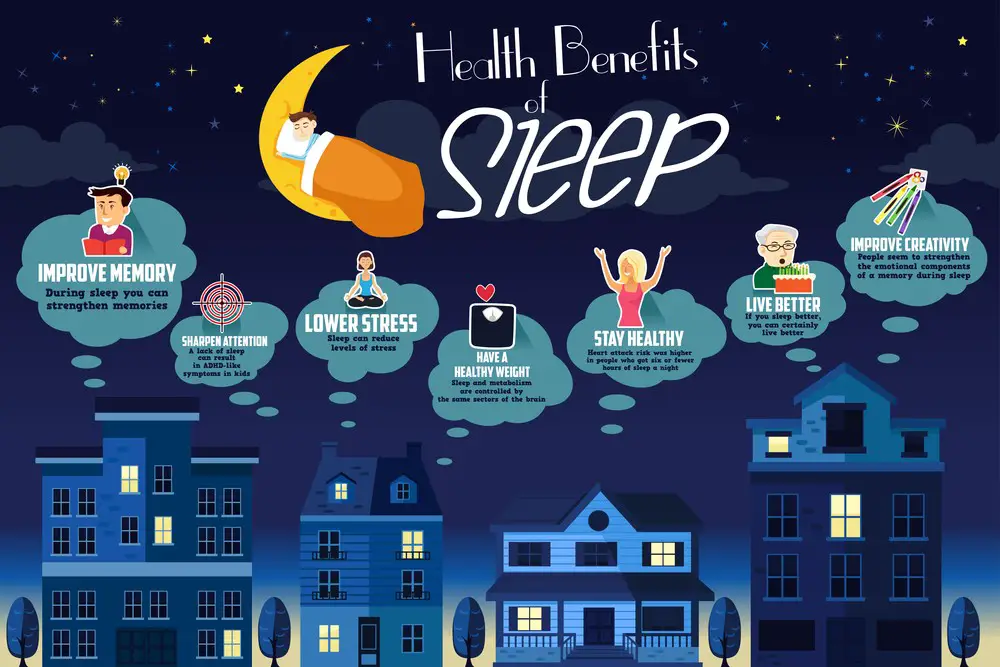
How Inadequate Sleep Feeds into Anxiety
The Importance of Getting Enough Sleep
Inadequate sleep can lead to various negative consequences on an individual’s well-being. Sleeping is crucial as it helps restore the body’s energy, improve brain function, and maintain emotional balance. When people don’t receive sufficient sleep, they may experience cognitive difficulties, irritability, and heightened stress levels.
Effects of Poor Sleep Hygiene
Poor sleep hygiene refers to habits and practices that hinder an individual’s ability to have a good night’s sleep. These habits might include screen exposure before bedtime, irregular sleep schedules, or consumption of caffeine and alcohol close to bedtime. Poor sleep hygiene can result in difficulty falling asleep, frequent awakenings during the night, and reduced sleep quality.
Some consequences of poor sleep hygiene include:
- Increased daytime fatigue
- Impaired memory and concentration
- Mood swings and irritability
- Lowered immune system function
The link between Insomnia and Anxiety
Insomnia is a sleep disorder characterized by difficulty falling asleep, staying asleep, or combining both. Anxiety and insomnia can become intertwined as they feed off each other, creating a cycle of sleeplessness and increased anxiety. Insomnia may exacerbate feelings of anxiety, and conversely, anxiety can make it more difficult for someone to fall asleep.
Anxiety might cause individuals to engage in unhealthy sleep patterns, leading to increased sleep disturbances. As a result, they might experience frustrations during waking hours, negatively impacting their overall quality of life. It is essential to address these issues, with professional help, to break the cycle of anxiety and insomnia and promote better mental health.
The Influence of Media Consumption on Anxiety
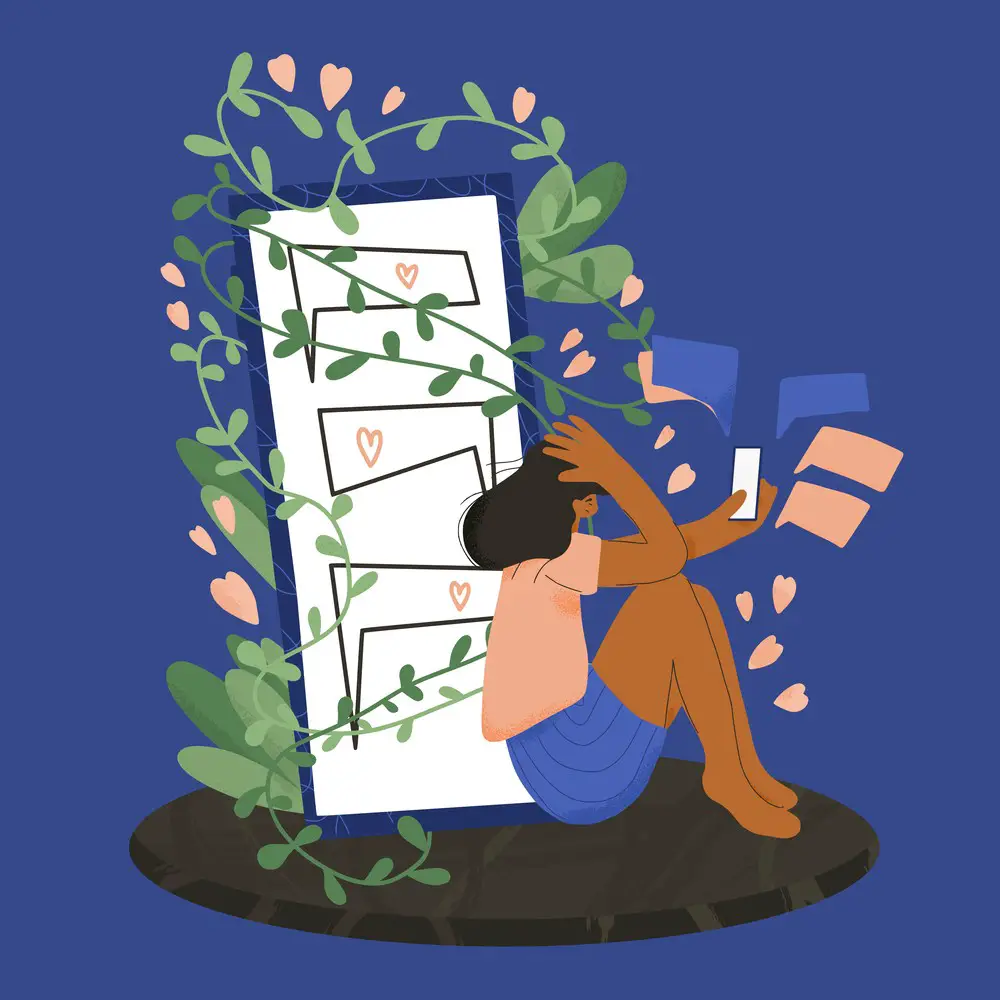
The Role of Social Media
The excessive use of social media platforms, such as Facebook and Instagram, can increase anxiety levels. Constant exposure to other people’s highlight reels can lead to feelings of inadequacy and a negative self-perception. In addition, the addiction to receiving likes, comments, and shares creates an artificial sense of self-worth, which, if unmet, can increase anxiety and stress levels.
Moreover, the fear of missing out (FOMO) experienced by social media users can also contribute to anxiety. This feeling occurs when individuals believe they are missing out on experiences or events others enjoy. Consequently, they may feel compelled to constantly check their social media feeds to stay informed, further perpetuating the cycle of anxiety.
Effects of News and Television
News consumption, particularly consuming negative news stories, can also be a source of anxiety. Bombarding tragic events, political unrest, and emergencies can create uneasiness and stress. Furthermore, the pressure to stay informed can lead to news addiction, where individuals obsessively check news sources out of fear of missing crucial information.
Television content, such as crime dramas, reality shows, and suspenseful films, can also instill anxiety. Prolonged exposure to distressing stories and images can affect viewers’ mental states, amplifying their sensitivity to real-world problems and triggering anxiety. In addition, binge-watching television can disrupt sleep patterns, increase sedentary behavior, and interfere with social connections, all of which can contribute to anxiety.
To mitigate the anxiety induced by media consumption, consider the following suggestions:
- Limit time spent on social media.
- Curate a balanced and positive newsfeed.
- Set boundaries on news consumption, opting for specific times daily.
- Be selective with television content, choosing uplifting and calming options when needed.
The Energy Connection: Anxiety and Nutrition
Effects of Caffeine and Alcohol
Caffeine, commonly found in coffee and energy drinks, can increase anxiety for some individuals. This is because caffeine stimulates the nervous system and can amplify feelings of nervousness and jitteriness. In addition, consuming alcohol can exacerbate anxiety symptoms by disrupting sleep patterns and causing fatigue.
Impact of Sugar on Anxiety
Carbohydrates, specifically glucose, are the primary fuel source for the brain. However, too much sugar in the diet can contribute to anxiety. Consuming excessive sugar can lead to blood sugar fluctuations, causing the body to experience rapid changes in energy levels. These fluctuations can foster feelings of unease and exacerbate existing anxiety symptoms.
Importance of Regular Meals
Waiting too long between meals can contribute to anxiety by depriving the brain of the glucose needed for optimal functioning. Eating regular meals throughout the day is essential to ensure a steady supply of glucose. Including complex carbohydrates, healthy fats, and proteins in each meal can help maintain steady blood sugar levels, reducing the likelihood of anxiety symptoms arising due to nutritional imbalances.
Creating Change: Replacing Mindless Habits
Benefits of Regular Exercise
Regular exercise plays a vital role in replacing mindless habits and reducing anxiety. Physical activity helps release endorphins that contribute to a person’s overall well-being. Incorporating exercise into one’s daily routine, including walking, running, swimming, or yoga, is essential. Ideally, an individual should aim for at least 150 minutes of moderate-intensity aerobic exercise each week.
Understanding Mindfulness and Meditation
Practicing mindfulness and meditation can be highly beneficial in alleviating anxiety and breaking mindless habits. Mindfulness involves staying present at the moment and fully engaging with one’s surroundings. Meditation allows individuals to focus on their breath and maintain a state of reflection. Both practices foster self-awareness, which can aid in identifying and consciously changing unhealthy thought patterns.
The Significance of a Healthy Routine
Establishing a healthy routine is essential in replacing mindless habits and combating anxiety. Individuals can improve their mental health and well-being by setting specific goals and creating a schedule. This routine should include:
- Consistent sleep schedule: Maintaining a regular sleep schedule helps regulate the body’s internal clock, ensuring better sleep quality and reducing anxiety.
- Balanced meals: A balanced diet provides the body with nutrients, promoting overall health and well-being.
- Time management: Allocating time for daily activities reduces stress and helps individuals take control of their lives, ultimately reducing anxiety.
Focusing on these aspects of a healthy routine can assist individuals in breaking free from mindless habits and fostering a more mindful approach to life.
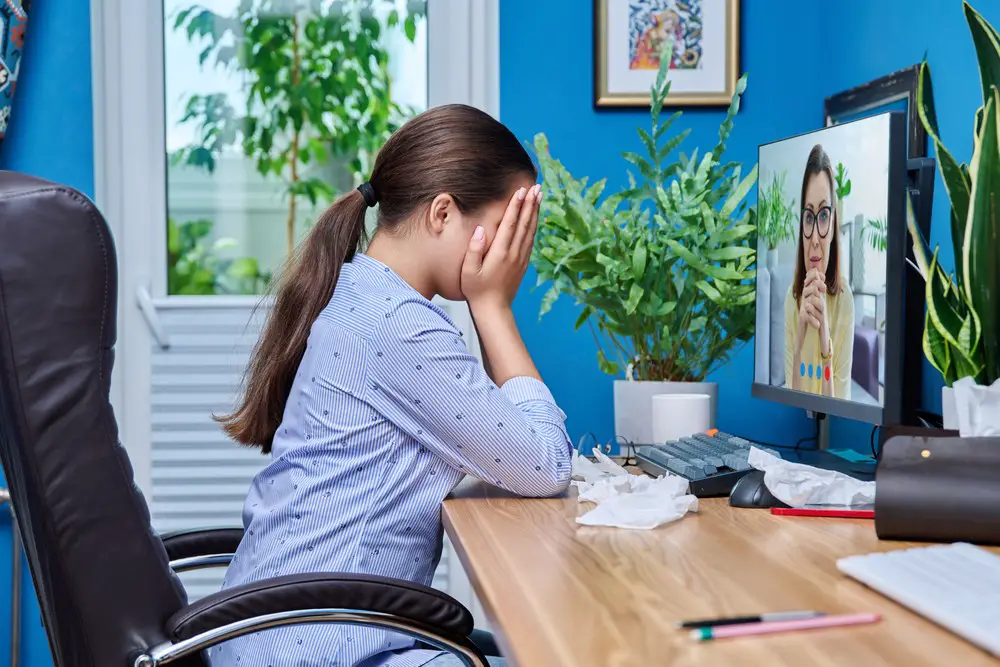
Seeking Professional Help
Recognizing anxiety symptoms is crucial, allowing individuals to take proactive steps toward managing their mental well-being. Common symptoms may include feeling on edge, racing thoughts, increased heart rate, and panic attacks.
When these symptoms persist and disrupt daily life, it is essential to seek professional help. A doctor or mental health professional can accurately diagnose anxiety and recommend effective treatments. Treatment options can range from therapy and counseling to prescription medications or lifestyle changes. Each treatment plan will be tailored to their specific needs and circumstances.
Speaking to a doctor can be an essential step in addressing panic attacks. These episodes of extreme anxiety can be debilitating, but with the help of a professional, coping mechanisms and treatment options can be explored, such as cognitive behavioral therapy (CBT) or medication.
Remember, seeking professional help is a sign of strength and not weakness. Reach out to a healthcare provider to begin the journey toward understanding and managing the mindless habits that can contribute to anxiety. In doing so, individuals will be better equipped to develop healthy coping strategies and improve their overall mental health.
Frequently Asked Questions
How to minimize anxiety triggers?
To minimize anxiety triggers, individuals can practice mindfulness and self-awareness. This includes recognizing personal triggers, practicing self-care, and seeking professional help. Finding healthy coping strategies like exercise, meditation, or therapy can also help address anxiety issues and improve overall well-being.
What are common habits that trigger anxiety?
Common habits that trigger anxiety include procrastination, excessive worrying, overscheduling, perfectionism, and neglecting self-care. These behaviors can increase stress levels and make individuals more susceptible to anxiety.
How can mindlessness lead to anxiety?
Mindlessness refers to being disengaged or unaware of the present moment. This lack of awareness can contribute to anxiety, as individuals may become easily overwhelmed or stressed by their thoughts and emotions. Practicing mindfulness and actively engaging in activities can help counteract anxiety and improve mental well-being.
How to break anxiety-causing habits?
Breaking anxiety-causing habits involves replacing them with healthier behaviors. This process starts with identifying the habit, understanding its purpose, and finding alternative responses. Individuals can then practice the new behavior until it becomes a natural response in situations that previously triggered anxiety.
What unexpected situations can cause anxiety?
Unexpected situations that can cause anxiety include abrupt changes in routine, unfamiliar environments, and challenging social interactions. These situations may lead to feelings of unease and discomfort, heightening anxiety in susceptible individuals.
Why do certain people trigger anxiety?
Certain people may trigger anxiety due to personal history, negative interactions, or unresolved emotional issues. These individuals can inadvertently activate anxiety responses in others by reminding them of past experiences or eliciting strong emotional reactions. It is essential to be aware of these triggers and develop strategies to manage the resulting emotions.
- Breaking the Silence: Why Men’s Mental Health Matters More Than Ever - April 15, 2025
- How to Transform a Home’s Patio Space into a Relaxing Space - March 23, 2025
- 5 Strategies to Use a Cell Phone to Help Manage Your Stress - March 23, 2025
This site contains affiliate links to products. We will receive a commission for purchases made through these links.

